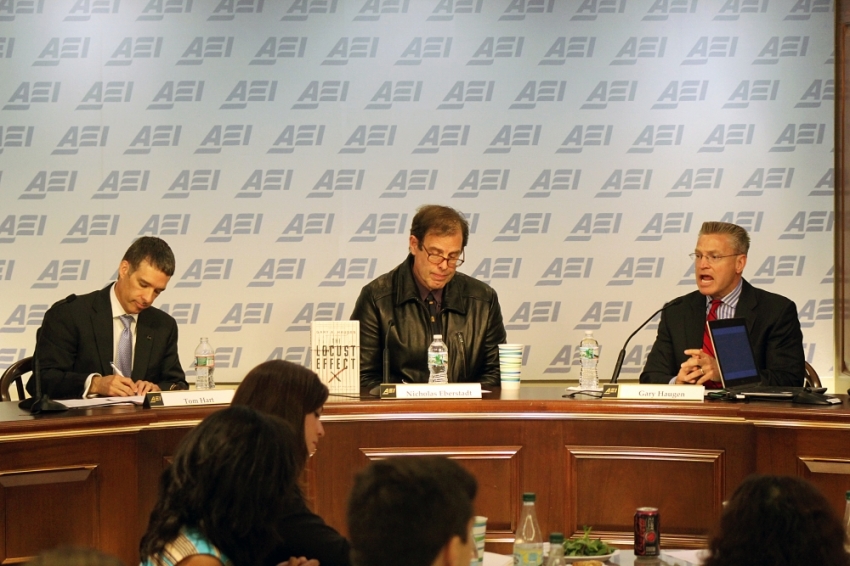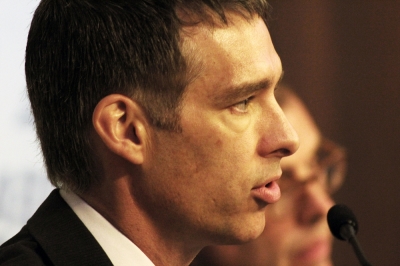Global Aid Needs to Address Violence Against the Poor, Author Says

WASHINGTON — To address global poverty, aid groups must recognize that a key cause of poverty is a justice system that fails to protect its most vulnerable citizens against violence, Gary Haugen, president, CEO and founder of International Justice Mission, argues in his new book, The Locust Effect: Why the End of Poverty Requires the End of Violence.
When talking about global poverty, most are familiar with problems like hunger, disease or poor sanitation, but are less familar with the consequences of a poor criminal justice system that exposes the poor to violence, Haugen told an American Enterprise Institute audience Wednesday in Washington, D.C.
The event, sponsored by AEI's Values & Capitalism Project, included responses from Tom Hart, U.S. executive director of the ONE Campaign, and Nicholas Eberstadt, an AEI scholar who specializes in economic development, poverty, foreign aid and global health.

The most pervasive abuses, the book documents, occur in four broad categories. In order of importance, they are: 1) gender violence, 2) slavery, 3) police abuse, and 4) land theft.
Rather than the headline-grabbing catastrophic events, like genocide or war, the book spotlights the "everyday violence" that "decimates the poor," Haugen explained.
"People abuse the poor because they can," he said.
Widows, for instance, are often vulnerable and thrown off their land by more powerful neighbors. One-half billion of the world's orphans are supported by widows, so violence against widows often affects their children as well, he said.
The nations where Haugen found these problems have criminal justice systems but no justice. They have laws, a court system and police, for instance. But what the law says and how the law is enforced contain vast differences.
Some of the problems stem from the fact that the criminal justice systems of many developing countries were set up by colonial powers, Haugen explained. Those colonial powers set up a justice system in order to protect the regime, not the poor and vulnerable, from violence.
In some of these nations, those who are supposed to keep people safe, the police, are part of the problem. In conducting a criminal investigation, for instance, the police may simply apprehend a poor person and charge them with the crime because the poor have no resources to defend themselves. Incarceration, Haugen said, has been a "deadly blow to the poor."

"I guess I'm the guy representing the committee that has ignored this issue," Hart joked.
When he first saw the book's subtitle, Hart said he was skeptical, but after reading the book now considers himself a supporter of Haugen's thesis.
"This is a tremendously important book," Eberstadt added. "This is ... an 'ah-ha moment' book. When you read it, it's all so obvious, except that nobody has said it before."
One way that organizations that address global poverty can put into practice the lessons of Haugen's book, he suggested, is to come up with an index that measures the justice system in every nation, similar to the economic freedom or global slavery indexes that are currently available. Such an index could be an important tool in addressing the problem, Eberstadt said.
You can watch the whole presentation below.



























